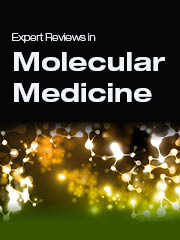Crossref Citations
This article has been cited by the following publications. This list is generated based on data provided by
Crossref.
Hsu, Yung-Hsiang
2007.
Pneumocystis carinii Pneumonia.
Tzu Chi Medical Journal,
Vol. 19,
Issue. 3,
p.
179.
Pryhuber, Gloria S.
Huyck, Heidie L.
Bhagwat, Samir
O'Reilly, Michael A.
Finkelstein, Jacob N.
Gigliotti, Francis
and
Wright, Terry W.
2008.
Parenchymal Cell TNF Receptors Contribute to Inflammatory Cell Recruitment and Respiratory Failure in Pneumocystis carinii-Induced Pneumonia.
The Journal of Immunology,
Vol. 181,
Issue. 2,
p.
1409.
Speth, Cornelia
Rambach, Günter
Würzner, Reinhard
and
Lass‐Flörl, Cornelia
2008.
Complement and fungal pathogens: an update.
Mycoses,
Vol. 51,
Issue. 6,
p.
477.
Ebel, Frank
and
Heesemann, Jürgen
2008.
Human and Animal Relationships.
p.
243.
Pyrgos, Vasilios
Shoham, Shmuel
Roilides, Emmanuel
and
Walsh, Thomas J.
2009.
Pneumocystis pneumonia in children.
Paediatric Respiratory Reviews,
Vol. 10,
Issue. 4,
p.
192.
Finkelman, Malcolm A.
2010.
Pneumocystis jiroveciiinfection: Cell wall (1→3)-β-D-glucan biology and diagnostic utility.
Critical Reviews in Microbiology,
Vol. 36,
Issue. 4,
p.
271.
Carmona, Eva M.
and
Limper, Andrew H.
2011.
Update on the diagnosis and treatment ofPneumocystispneumonia.
Therapeutic Advances in Respiratory Disease,
Vol. 5,
Issue. 1,
p.
41.
Calligaro, Gregory
Meintjes, Graeme
and
Mendelson, Marc
2011.
Pulmonary manifestations of the immune reconstitution inflammatory syndrome.
Current Opinion in Pulmonary Medicine,
Vol. 17,
Issue. 3,
p.
180.
Swain, Steve D.
Meissner, Nicole
Han, Soo
Harmsen, Allen
and
Deepe, G. S.
2011.
Pneumocystis Infection in an Immunocompetent Host Can Promote Collateral Sensitization to Respiratory Antigens.
Infection and Immunity,
Vol. 79,
Issue. 5,
p.
1905.
Child, N.
O'Carroll, M.
and
Berkahn, L.
2012.
Rituximab‐induced interstitial lung disease in a patient with immune thrombocytopenia purpura.
Internal Medicine Journal,
Vol. 42,
Issue. 3,
Tasaka, Sadatomo
and
Tokuda, Hitoshi
2012.
Pneumocystis jirovecii pneumonia in non-HIV-infected patients in the era of novel immunosuppressive therapies.
Journal of Infection and Chemotherapy,
Vol. 18,
Issue. 6,
p.
793.
Chou, Chung-Wei
Lin, Fang-Chi
Tsai, Han-Chen
and
Chang, Shi-Chuan
2013.
The importance of pro-inflammatory and anti-inflammatory cytokines inPneumocystis jiroveciipneumonia.
Medical Mycology,
Vol. 51,
Issue. 7,
p.
704.
Vargas, Sergio L.
Ponce, Carolina A.
Gallo, Miriam
Pérez, Francisco
Astorga, J.-Felipe
Bustamante, Rebeca
Chabé, Magali
Durand-Joly, Isabelle
Iturra, Pablo
Miller, Robert F.
Aliouat, El Moukthar
and
Dei-Cas, Eduardo
2013.
Near-Universal Prevalence of Pneumocystis and Associated Increase in Mucus in the Lungs of Infants With Sudden Unexpected Death.
Clinical Infectious Diseases,
Vol. 56,
Issue. 2,
p.
171.
Stepensky, Polina
Keller, Baerbel
Buchta, Mary
Kienzler, Anne-Kathrin
Elpeleg, Orly
Somech, Raz
Cohen, Sivan
Shachar, Idit
Miosge, Lisa A.
Schlesier, Michael
Fuchs, Ilka
Enders, Anselm
Eibel, Hermann
Grimbacher, Bodo
and
Warnatz, Klaus
2013.
Deficiency of caspase recruitment domain family, member 11 (CARD11), causes profound combined immunodeficiency in human subjects.
Journal of Allergy and Clinical Immunology,
Vol. 131,
Issue. 2,
p.
477.
Tasaka, Sadatomo
and
Tokuda, Hitoshi
2013.
Recent advances in the diagnosis ofPneumocystis jiroveciipneumonia in HIV-infected adults.
Expert Opinion on Medical Diagnostics,
Vol. 7,
Issue. 1,
p.
85.
Bonilla-Abadía, F
Betancurt, J F
Pineda, J C
Vélez, J D
Tobón, G J
and
Cañas, C A
2014.
Pneumocystis jirovecii pneumonia in two patients with systemic lupus erythematosus after rituximab therapy.
Clinical Rheumatology,
Vol. 33,
Issue. 3,
p.
415.
Dahlin, Jayme L.
Kottom, Theodore
Han, Junhong
Zhou, Hui
Walters, Michael A.
Zhang, Zhiguo
and
Limper, Andrew H.
2014.
Pneumocystis jirovecii Rtt109, a Novel Drug Target for Pneumocystis Pneumonia in Immunosuppressed Humans.
Antimicrobial Agents and Chemotherapy,
Vol. 58,
Issue. 7,
p.
3650.
Chou, Chung-Wei
Lin, Fang-Chi
Tsai, Han-Chen
and
Chang, Shi-Chuan
2014.
The impact of concomitant pulmonary infection on immune dysregulation in Pneumocystis jirovecii pneumonia.
BMC Pulmonary Medicine,
Vol. 14,
Issue. 1,
Ospina, Fabio E.
Agualimpia, Andrés
Bonilla-Abadía, Fabio
Cañas, Carlos A.
and
Tobón, Gabriel J.
2014.
Pneumocystis jiroveciiPneumonia in a Patient with Rheumatoid Arthritis Treated with Abatacept.
Case Reports in Rheumatology,
Vol. 2014,
Issue. ,
p.
1.
Loron, Marie-Charlotte
Grange, Steven
Guerrot, Dominique
Di Fiore, Frédéric
Freguin, Caroline
Hanoy, Mélanie
Le Roy, Frank
Poussard, Gwenaelle
Etienne, Isabelle
Legallicier, Bruno
Pfister, Christian
Godin, Michel
and
Bertrand, Dominique
2015.
Pneumocystis jiroveciiPneumonia in Everolimus-Treated Renal Cell Carcinoma.
Journal of Clinical Oncology,
Vol. 33,
Issue. 8,
p.
e45.




